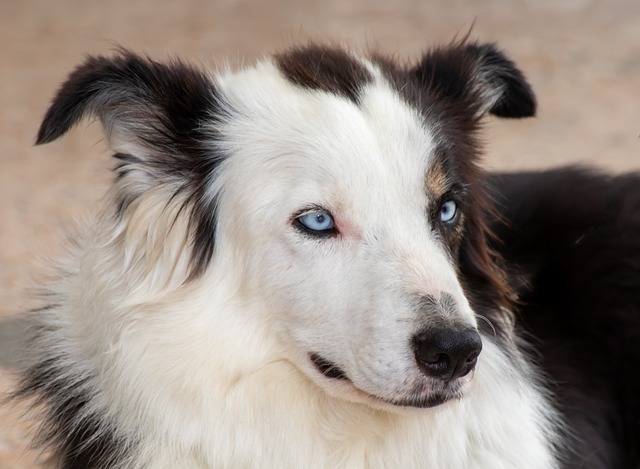
Is standing for a long time harmful to a dog's body
When we see dogs performing on their hind legs in circuses or street entertainers training dogs to stand for prolonged periods to beg,
Watching their beloved dog constantly scratch their swollen skin, the feeling of heartache and powerlessness is something every owner wants to avoid. Dogs' skin problems may seem like surface symptoms, but they actually affect overall health, and prevention is far more important than treatment. A healthy coat is the first barrier to a dog's happy life, and guarding this barrier requires owners to start from various aspects such as daily care, dietary management, and environmental control, and establish a scientifically sound protective system.
Regular grooming is a fundamental task in maintaining skin health. Different breeds of dogs need to be matched with different grooming frequencies and tools. Long haired dogs such as Golden Retrievers need to be groomed daily to prevent tangling, while short haired dogs such as Labrador Retrievers can be groomed 2-3 times a week. Combing hair not only removes dead hair and dust, but also promotes blood circulation in the skin, allowing for timely detection of potential skin problems. Special attention should be paid to the intensity of combing, as being too rough can damage hair follicles and increase the risk of skin infections. The frequency of bathing needs to be scientifically controlled, as excessive cleaning can damage the natural oil layer of the skin. It is generally recommended to use dog shower gel with a suitable pH value 1-2 times a month. After taking a shower, be sure to thoroughly dry it, especially for dogs with double coats. The damp bottom coat is a breeding ground for fungi.
Dietary nutrition directly affects the skin barrier function. High quality protein is the main component of hair, while omega-3 fatty acids can enhance skin resistance. When choosing staple foods, attention should be paid to whether the source of animal protein in the ingredient list is clear, to avoid low-quality grains with excessive grains or unknown additives. Some dogs may be allergic to specific ingredients, exhibiting symptoms such as skin itching and ear inflammation, and require food exclusion tests to identify allergens. Adding fresh ingredients such as salmon, egg yolks, and other natural beauty foods in moderation is safer and more effective than various nutritional supplements. The quality of drinking water is equally important, ensuring access to clean drinking water at all times can help maintain skin hydration.

Potential stimuli in the living environment require special attention. Spring pollen, summer humidity, autumn dust mites, winter dryness, each season has specific skin challenges. Maintain a ventilated and dry living environment, use air purifiers to reduce suspended allergens, and regularly clean dog bedding and toys. After going for a walk, especially during the rainy season or after visiting the grass, it is recommended to wipe the soles of the feet and abdomen to prevent moisture and foreign object irritation. The choice of cleaning agents at home should also be cautious, avoiding the use of highly irritating chemical products that come into contact with the dog's activity area.
Preventing parasites is a crucial aspect of skin care. Flea saliva allergy is one of the most common causes of skin diseases, and even a single bite can cause severe itching. Regular use of drops or oral anthelmintics every month, combined with environmental disinfection and sterilization, can form complete protection. Ticks not only feed on blood, but can also spread various diseases. During spring and summer, special attention should be paid to checking hidden areas such as the ears and armpits. Mite infection is more difficult to detect, and regular veterinary check ups can help detect it early. Remember not to use cat repellent on dogs, as certain ingredients may be fatal to dogs.
Stress management, often overlooked, is an important factor in skin health. Dogs that have been in a state of anxiety for a long time may exhibit excessive licking of a certain area, leading to local skin damage. Establishing a regular daily routine for dogs, providing sufficient exercise and mental stimulation, and preparing a safe space for solitude can effectively reduce stress. Families with multiple dogs should ensure that each dog has its own resources to avoid stress reactions caused by competition.
Daily observation is the key to early detection of skin problems. Pay attention to any abnormal hair loss, increased dandruff, local fever, or lumps during daily touch checks. Ear, armpit, groin and other areas are most prone to problems and require special attention. Do not self medicate if abnormalities are found. Incorrect topical medication may worsen symptoms, and it is necessary to consult a veterinarian in a timely manner. Regular professional beauty treatments not only keep the hair clean, but experienced beauticians can often detect early skin changes that the owner may overlook.
The essence of preventing skin diseases is to respect the physiological characteristics of dogs. Their skin pH values are different from those of humans, and their sweat gland distribution also varies. All care measures should be based on scientific knowledge. When we comb the fur of our beloved dog, it is not only a caring behavior, but also a gentle communication; When we carefully prepare its meals, it is not only a nutritional supply, but also a commitment to health. Preventive care may not have immediate results, but when you see your beloved dog with shiny fur and healthy skin, that sense of relief and peace of mind is the best reward for a attentive owner. Remember, preventing skin problems is not a tedious task, but a daily practice of love and responsibility, which is the basic guarantee to accompany them to spend every day healthy and happy.

When we see dogs performing on their hind legs in circuses or street entertainers training dogs to stand for prolonged periods to beg,

When we prepare to greet the dog's warm greeting as usual, we find that the once bright and clear eyes have become red and swollen, and the dog keeps scratching with its claws, with a look of discomfort and helplessness in its eyes.

When you notice your beloved dog constantly scratching, biting itself, or see its once-smooth coat becoming red, swollen,

When you see your beloved dog constantly scratching or notice suspicious black specks in its smooth fur, it’s natural to feel concerned. Parasites are a common health issue for dogs,

When we look into the eyes of dogs, the originally bright and clear eyes suddenly show distressing red bloodshot, and even become swollen and secrete more.

At the moment when the door closes, there comes the heart wrenching barking of dogs inside the house, or when they come home and see a chewed sofa and scattered slippers,